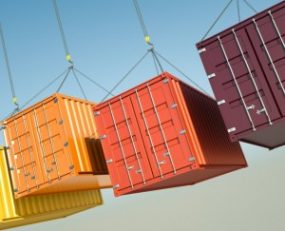
The latest clouds to gather over the future of globalised supply chains come from a series of statements by the US Government concerning China and its place in the global trading system. Over the weekend, the news agency Reuters reported an interview with Keith Krach, US State Department undersecretary for ‘Economic Growth, Energy and the Environment’ where he comments that “we’ve been working on [reducing the reliance of our supply chains in China] over the last few years but we are now turbo-charging that initiative.” The article goes on to suggest that the “U.S. Commerce Department, State and other agencies are looking for ways to push companies to move both sourcing and manufacturing out of China. Tax incentives and potential re-shoring subsidies are among measures being considered to spur changes.”
This follows comments by the US Secretary of State Mike Pompeo concerning the creation of an “Economic Prosperity Network” composed of countries such as “Australia, India, Japan, New Zealand, South Korea and Vietnam”.
On the Chinese side, there are suggestions from within the Chinese Communist Party bureaucracy that Beijing should “unite friendly countries” against the US whilst “welcoming” the departure of foreign companies.
It is difficult to measure the implications of these political statements for real-life supply chain policy. Many politicians, both in the West and in China, seem to have only a loose grasp of how decisions around supply chains are made. A useful contrast were the comments made last week by Frank Appel, CEO of DHL to the Wall Street Journal. When asked about the effects of the crisis, he said that he didn’t expect any movements away from globalisation or the return of domestic production, rather companies “might put them in other places…. but it will not be all near-shore because that’s not affordable.” Supply chains may become more resilient by “spreading factories across several regions instead of having just one factory in China” but anyone who thinks that “the game is over with globalisation doesn’t understand what drives consumers or what drives business decisions.”
Certainly, Mr Appel’s remarks may reflect someone whose company has a reliance on global trade. Yet what he points to is the economic reality of comparative advantage and the centralisation of production. These are the fundamentals of supply chain management.
There may be strong pressure to reduce trade with China, which is an enormous issue in itself, but it is likely to be global trade patterns that are changing rather than its principles.
Source: Transport Intelligence, 05 May 2020
Author: Thomas Cullen